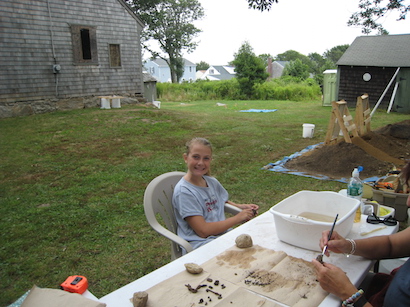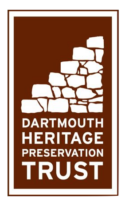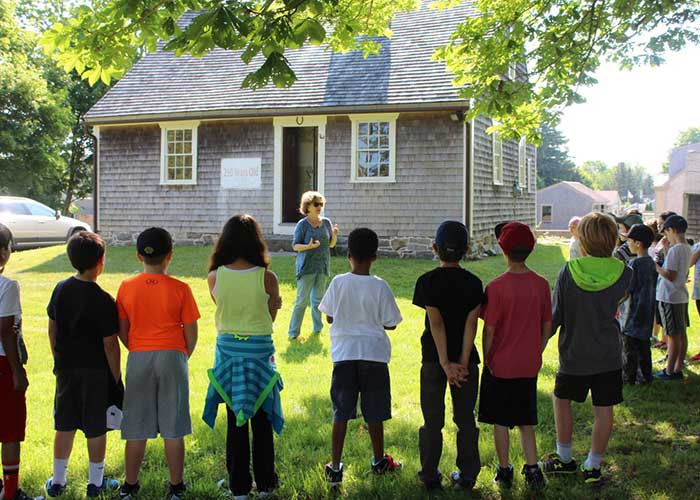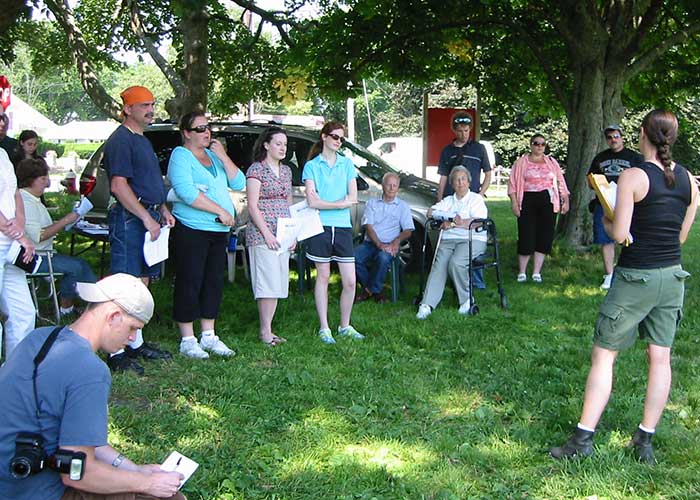“We’ve always envisioned a cultural heritage facility. It’s about education, education, education.” | DHPT President Diane Gilbert
The Akin House Cultural Heritage Center
The highest and best use of this permanently protected property is to become the Town’s first Cultural Heritage Center and Educational Facility with programming from pre-contact to the modern age. After the completion of a multi-phased historic preservation and conservation project, the Akin House Cultural Heritage Center will serve as a "study house" for area residents, visitors, educators, researchers, historians, architects, students of all ages, and will become an important stop for heritage tourists visiting southeastern, Massachusetts.
The 1762 house will have display lighting but will not be equipped with plumbing and other modern amenities. Therefore, a new building is being proposed similar in style and scale to the house for use as a public meeting space, office space, classroom, reading room/library for research, as well as for exhibitions about local and regional history.
“It is such a valuable historic building but we know for sure the house is not large enough to sustain receiving people,” said Joel Cooper, professor and director of the Small Business Institute at RWU. “A visitor center would be the ideal mechanism for the public to visit, learn more and see the house.”
For more information, check out SouthCoast Today's article from November 2014 HERE.
The Akin House Beckons Heritage Tourism
DHPT's plans for the property will result in a potential tourist destination where visitors to the Elihu Akin House Cultural Heritage Center will be given a multifaceted experience. Programming will include:
- Architecture of the House: A visual post and beam cape structure built in 1762 by a yeoman. The influences of methods passed down through generations. How to conserve a structure and how to look for the story of a house as it changes.
- Akin History: The CHC will tell the story of those who lived in the Akin house since it was built through exhibits and interpretive displays of cultural, economic, and social changes, photographs, oral and written histories.
- Site Study: Exhibits will portray the historical context of the landscape in relation to the house (roads, outbuildings, orchards, gardens, surrounding farmland).
- Archaeology: Workshops and exhibits will show relationships between lifestyle and artifacts (outbuildings, foundations, pottery shards, iron instruments, tools, and personal belongings).
- Genealogy: Workshops will inspire visitors to learn about the life of a house from documents such as deeds, wills, and other archival sources.
- Community History: Explore farming, fishing, shipbuilding, entrepreneurship and other forms of economic development of both pre-contact and contact groups from colonial days to the present.
- Historic Context through Maps, Ancient Drawings, and GIS: Display centuries of change in old Dartmouth–– shelters, landscape and streetscapes, through division of land, plans realized by early to later landowners, changes in population and density.



